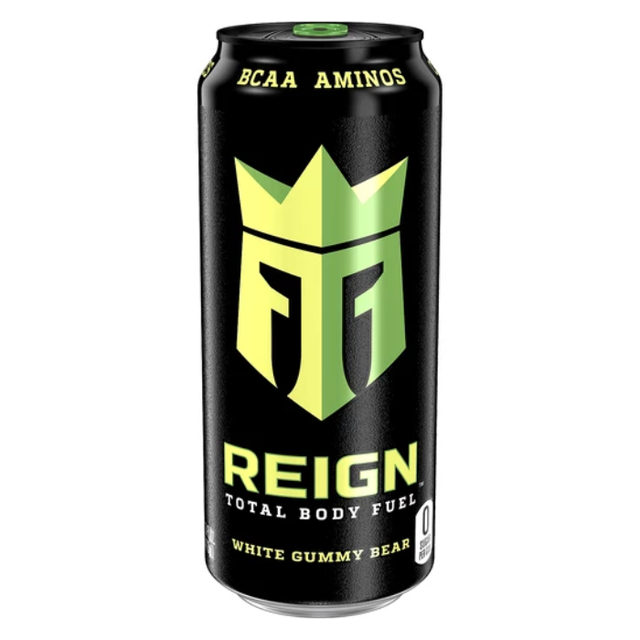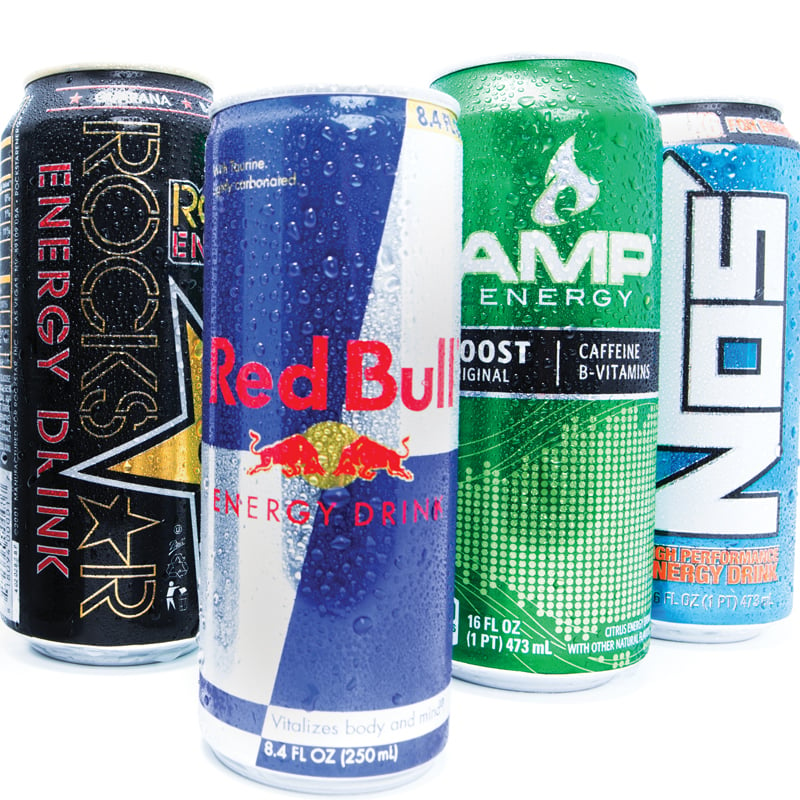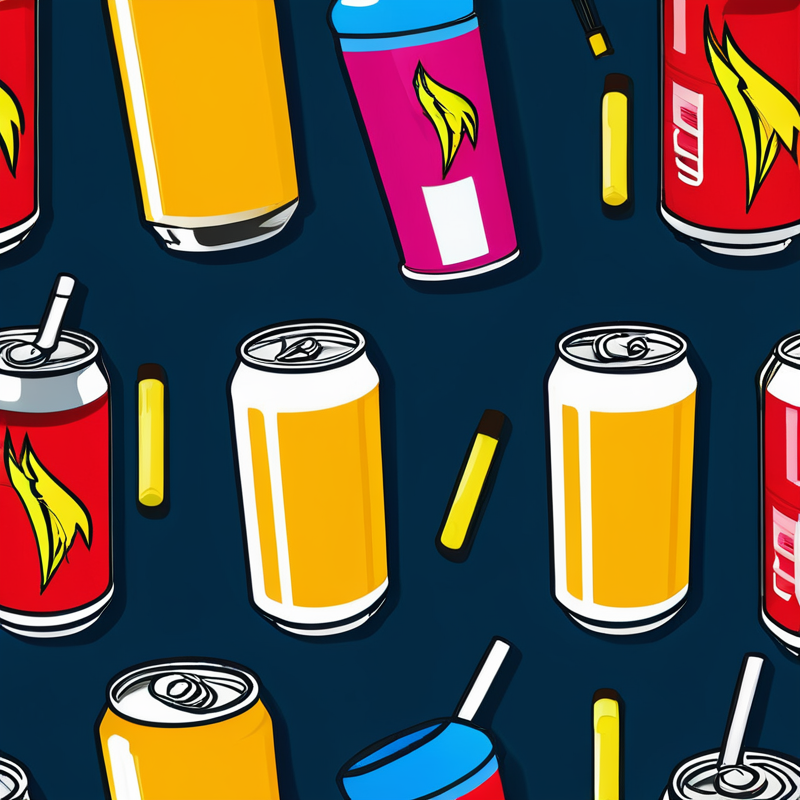Introduction to Energy Drink Concerns
What are the worst energy drinks? Energy drinks have surged in popularity, especially among young adults and teenagers. Marketed for their quick energy-boosting effects, these beverages are often loaded with caffeine and sugars. The radiant branding and invigorating names make them attractive, yet these attributes overshadow potential health risks.

Consumers often choose energy drinks for a swift enhancement of alertness and performance. However, this comes with hidden costs to health due to high levels of undesirable ingredients. The main concerns include their excessive caffeine content, which can surpass daily recommended limits, and high sugar levels that significantly contribute to caloric intake.
Understanding the contents and effects of energy drinks is essential for making informed choices. This section of the guide aims to shed light on why certain energy drinks are considered harmful and should be avoided. It is designed to help you understand the immediate and potential long-term health implications associated with frequent consumption of these powerful beverages.
Evaluation Criteria for Harmful Energy Drinks
When identifying energy drinks that may be harmful, several criteria are essential. Here are the key factors we consider:
- Caffeine Content: We look for drinks with caffeine levels well above the FDA’s recommended 400 milligrams per day limit. High caffeine can lead to serious health risks.
- Sugar Levels: Sugar content is another crucial factor. Drinks with high sugar can affect overall health. We flag any energy drinks exceeding the daily recommended sugar intake.
- Artificial Additives: The presence of artificial flavors, colors, and sweeteners can also render an energy drink harmful. These are often linked to long-term health complications.
- Consumer Reviews: Feedback from users provides insights into the immediate effects of consuming these drinks, such as jitteriness or heart palpitations.
- Health Warnings: We consider any drinks implicated in health warnings or studies showing negative effects. These are typically regarded as more dangerous.
- Transparency of Ingredients: Drinks that do not clearly list their ingredients or use vague terms like ‘proprietary blend’ draw our attention. Transparency is key for safe consumption.
By focusing on these criteria, we aim to identify energy drinks that could pose threats to consumer health and well-being.

The Most Harmful Energy Drinks to Avoid
Care must be taken when choosing energy drinks. High caffeine and sugar can harm health. Below are drinks with a high risk.
Rockstar
Rockstar’s high sugar and caffeine content make it a top concern. Avoid it for better health.
Bang
Bang’s extreme caffeine levels can lead to side effects. Opt for safer alternatives.
Full Throttle
Full of sugar and caffeine, Full Throttle can cause health issues. Choose wisely.
Monster Energy
Monster Energy has excessive sugars and caffeine. It’s best to stay clear of this drink.
5-Hour Energy
The small size masks high caffeine content. 5-Hour Energy is not recommended.
NOS Energy
NOS’s high caffeine and sugar levels can be dangerous. Look for healthier drinks.
Spike Hardcore Energy
With alarming caffeine amounts, Spike Hardcore is best avoided for health safety.
Health Implications of High Caffeine and Sugar
The combination of high caffeine and sugar in energy drinks can lead to multiple health issues. When consumed in large amounts, these ingredients have both immediate and long-term effects on the body.
Immediate Effects on the Body
High caffeine levels can cause immediate physical reactions. These include increased heart rate, heightened blood pressure, and jitters. Sugar spikes can lead to quick energy bursts, followed by crashes. This pattern can make you feel more tired than before. People often report nervousness, difficulty focusing, and sleep disruption after consuming these drinks.
Long-Term Health Risks
The long-term consumption of energy drinks with high caffeine and sugar can have serious consequences. Habitual intake can result in caffeine dependence and increased risks of heart disease. High sugar content contributes to weight gain, type 2 diabetes, and dental problems. Both ingredients, over time, can stress the body, possibly leading to chronic health issues.

Alternative and Healthier Options for Energy Boosts
In search of better alternatives to high-caffeine and sugary energy drinks? Let’s explore healthier options.
Natural Beverages and Their Benefits
Trade in energy drinks for these natural picks:
- Water: Keeps you hydrated, detoxifies, and sustains energy.
- Green Tea: Offers antioxidants and a gentle caffeine lift.
- Black Coffee: Natural caffeine source; skip added sugar.
- Fresh Fruit Juices: Provide vitamins and a quick energy spike.
- Smoothies: Combine fruits, veggies, and protein for balanced energy.
- Coconut Water: Hydrates with essential electrolytes.
- Herbal Teas: Like peppermint and ginger, they’re revitalizing without caffeine.
Natural beverages are not just refreshing. They come with benefits like hydration, essential nutrients, and steady energy that don’t overwhelm your system.
How to Choose Healthy Energy Drinks
If you prefer pre-packaged drinks, here’s how to choose wisely:
- Check Labels: Opt for drinks with low sugar and natural caffeine.
- Avoid Artificial Sweeteners: They can harm gut health.
- Look for Nutrients: Select drinks enriched with vitamins and minerals.
Remember, not all marketed ‘energy drinks’ are harmful. Some use moderate caffeine and natural ingredients. But do your research to avoid the worst energy drinks.
Removing Harmful Energy Drinks from Your Diet
To keep your diet healthy and safe, consider cutting out harmful energy drinks. High caffeine and sugar levels are not good for you. Let’s look at ways to do this without feeling deprived of energy.
Tips to Reduce Consumption
- Plan your day well to avoid energy lows when you might reach for a drink.
- Carry water bottles to stay hydrated, keeping fatigue at bay.
- Eat balanced meals with proteins, fats, and complex carbs for steady energy.
- Snack on fruits or nuts instead of gulping down an energy drink.
- Get regular sleep to naturally boost energy without relying on drinks.
- Try natural caffeine sources like green tea for a gentler pick-me-up.
- Exercise regularly to increase natural energy and reduce sleepiness.
- Seek support if cutting back on energy drinks is hard for you.
Reducing your intake of energy drinks can be a positive health choice. These simple steps can make a big difference.
Understanding Labels and Ingredients
Make sure to read drink labels to know what you’re ingesting. Here are some pointers:
- Check caffeine content: It should not be too high.
- Look for added sugars: Watch out for high levels or artificial sweeteners.
- Find real ingredients: Choose drinks with natural sources of energy.
- Beware of ‘proprietary blends’: They can hide the true content.
- See if fortified: Some drinks have added vitamins and minerals.
Being aware of what’s in your drink helps you make better choices. Choose drinks that offer health benefits without the risks.
Conclusion: Making Health-Conscious Choices
In wrapping up our guide on energy drinks to avoid, it’s clear making healthy choices matters. By now, you know high caffeine and sugar in these drinks pose risks. Avoiding the worst energy drinks is a step towards better health.
Opt for alternatives that offer natural energy. Look for drinks with low caffeine, little to no sugar, and plenty of nutrients. Remember to read labels carefully. They help you pick beverages that are better for your body.
Cutting harmful drinks from your diet takes effort. Follow our tips to ease this process. Plan meals, carry water, and sleep well. These habits help you avoid energy lows and ditch the bad drinks.
Embrace natural options like water and herbal teas. These keep you hydrated and energized without the crash. Make these choices part of your daily routine. Your body will thank you.
In summary, prioritize your health. Choose drinks that support your well-being. Stay informed, make wise choices, and enjoy sustained energy the healthy way.
